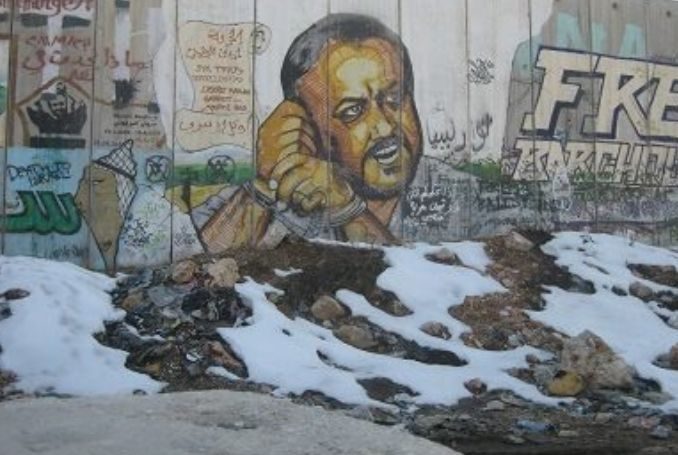Not a Defeated People: On Baroud’s ‘These Chains Will Be Broken’

Imprisoned Palestinian leader Marwan Barghouti. (Photo: FIle)
By Gary Anderson
Dr. Ramzy Baroud’s prior books have examined many aspects of Palestinian life, within the homeland as refugees and in the extended Diaspora. In his latest work, ‘These Chains Will Be Broken: Palestinian Stories of Struggle and Defiance in Israeli Prisons“, he attends to those who have been held in Israeli prisons.
“These Chains Will Be Broken: Palestinian Stories of Struggle and Defiance in Israeli Prisons" by Palestinian author & journalist Ramzy Baroud in collaboration with The Palestine Chronicle editorial team, was launched on Jan. 20, Clarity Press announced https://t.co/RLvbFKb7Fc pic.twitter.com/cYyh03GqOm
— Ramzy Baroud (@RamzyBaroud) February 24, 2021
These interviews and life stories capture the essence of what one finds in Palestinian civil society: “They can steal my land, destroy my home, take my liberty, but they cannot steal my humanity”. The steadfastness (sumud) of the people in the civilian population is quite remarkable, given that they have lived for more than 70 years under a series of escalating controls and restrictions by Israel.
However, for those hundreds of thousands of Palestinians (past and present) in Israeli prisons, life is ever so much worse. Deprived of formal charges, due process or representation, thousands are imprisoned and tortured with minimal access to medical care or family visits. If there is a trial, it is in a military (not civilian) court system that has a conviction rate of nearly 100%. If not tried, Administrative Detention can be applied, keeping people imprisoned for decades without a formal charge.
To mark the end of Israel Apartheid Week, I recommend Ramzy Baroud's remarkable new book, 'These Chains Will be Broken'. His painful, inspiring stories of resistance by Palestinians offer a perspective to our current state of fear and its scaremongering. https://t.co/hcABIL55xs
— John Pilger (@johnpilger) March 21, 2020
Although this book includes many details of the dreadful circumstances that prisoners experience, that is really not what the book is about. It is about the indomitable spirit of the people of Palestine: they will not be broken. The Israeli mindset is that “These people must learn to behave as defeated people”. But these interviews and life stories show that the people of Palestine will not be broken or degraded, even by the Israeli prison system.
Delighted to present the introduction (titled “Palestine’s Organic Intellectuals”) to Ramzy Baroud’s latest book "These Chains Will be Broken: Stories of Struggle and Defiance in Israeli Prisons" (2020), courtesy of Clarity Press. Relevant links included.https://t.co/liRbsxNCf0
— Inverse Journal (@InverseJournal) March 31, 2020
These are stories of people who create nurturing and supportive systems within the prison walls, as well as to their home communities and their nation. May we all achieve such strength of character.
– Gary Anderson is a retired Civil Engineer who lived in Palestine in 2005-7 and in 2013, working on water and wastewater issues there. His time as a resident has given him a sense of the commitment to family, home and place that is an essential part of the people of the land.










































0 Comments